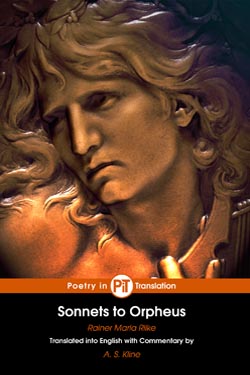Rainer Maria Rilke
Sonnets to Orpheus
and The Dual Realm, a new commentary

- Home
- Browse below
- Download
- Buy This Book
Sonnets to Orpheus
Rilke's Sonnets to Orpheus in a new, complete translation.
The Dual Realm
A new commentary on Rilke's Sonnets to Orpheus.
About This Work
Rainer Maria Rilke (1875-1926) wrote the ‘Sonnets to Orpheus’ over an intensely creative three-week period in February 1922, during which he also completed the ‘Duino Elegies’. The Sonnets were prompted by the earlier death of Wera Knoop, a childhood friend of his daughter Ruth, and in them Rilke develops the theme of the double-realm of life and death, pursuing, as in the Duino Elegies, his desire to more-closely integrate what he saw as the valid sphere of death with the claims of life.
The descent of Orpheus, the mythical poet-musician of Thrace, into the underworld in a failed attempt to reclaim his dead wife Eurydice, and his subsequent death at the hands of the Bacchantes, provided Rilke with the framework of the sonnets. Elements of the Hellenistic Orphic rites of Dionysus may also have influenced Rilke’s thinking, in which adherents of the cult sought union with the divine in order to acquire mystic knowledge.
The poems also resonate with other deaths which figure elsewhere in his work. The overall tone of the sonnets is, however, positive and life-affirming. Rilke’s poetry was not, as he himself stated, intended as death-seeking, but rather a celebration of life, and an act of praise, in which death is recognised primarily in terms of the memories of the dead recalled by the human mind, and their influence on the living. In that sense the double-realm is certainly both valid and authentic.
Translated by A. S. Kline © Copyright 2023, All Rights Reserved.
This work may be freely reproduced, stored and transmitted, electronically or otherwise, for any non-commercial purpose. Conditions and Exceptions apply.
Last Modified 16 July 2023